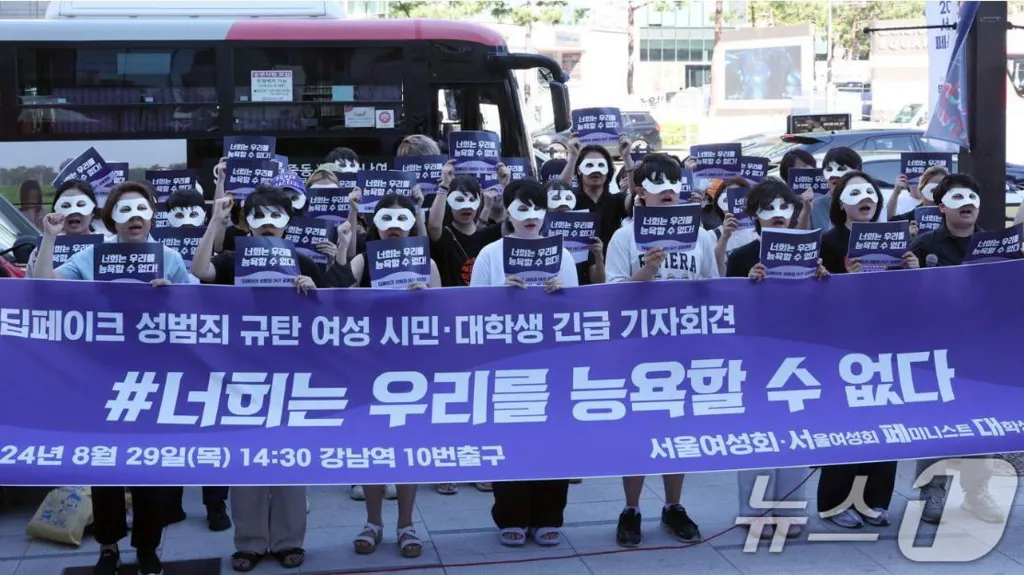Last Saturday, Heejin, a university student in Seoul, received a disturbing message on her phone via the messaging app Telegram. The anonymous sender informed her that her pictures and personal information had been leaked. Moments later, she was sent a photo of herself from her school days, followed by a deeply disturbing, sexually explicit image—created using sophisticated deepfake technology.
Shocked and terrified, Heejin, whose name has been changed to protect her identity, found herself overwhelmed by a flood of similar images, all featuring her face digitally manipulated onto the bodies of others engaged in sexual acts.
“I was petrified and felt utterly alone,” Heejin told the BBC. Unfortunately, she is far from alone.
Just days before, South Korean journalist Ko Narin published a groundbreaking report revealing the existence of deepfake porn rings operating within two major South Korean universities. The discovery has since snowballed into a nationwide scandal, uncovering a vast network of Telegram chat groups where users share photos of women and girls they know, using AI to generate fake pornographic images in seconds.

Ms. Ko’s investigation revealed that these groups target not only university students but also high school and even middle school girls. Some victims are even given their own dedicated “humiliation rooms,” where users can request the creation of deepfake images. These rooms often have strict entry requirements, with some demanding multiple photos and personal details of the targeted individuals.
The revelations have shocked South Korea. The Hankyoreh newspaper, where Ms. Ko’s report was published, has prompted a forceful response from the authorities. Police have announced an investigation into Telegram’s role in facilitating these crimes, following the example of France, which recently charged Telegram’s founder with complicity in illegal activities.
President Yoon Suk Yeol’s administration has also vowed to implement harsher penalties for those involved in the creation and distribution of deepfake images. However, women’s rights activists argue that the government’s response has been long overdue, as similar incidents have plagued the country in the past, such as the infamous Nth room scandal in 2019.
Ms. Ko’s report has also inspired activism across the country, with many women and teenagers deactivating their social media accounts to protect themselves from potential exploitation. Women’s rights groups are now calling for stricter regulation of platforms like Telegram, which have become breeding grounds for these heinous activities due to their anonymity and encryption features.
The crisis has brought to light the deep-rooted issue of misogyny in South Korea, where new technology is increasingly being used to perpetuate sexual abuse. Experts and activists emphasize that the solution lies in addressing the underlying structural sexism in society.
While the government has pledged to increase criminal sentences and punish those who view deepfake pornography, the road to justice remains fraught with challenges. Many of the offenders are teenagers who, when tried in youth courts, often receive lenient sentences.
In the aftermath of the scandal, many of the exposed chatrooms have been shut down, but new ones are likely to emerge. Even Ms. Ko, the journalist who broke the story, has become a target, with a new “humiliation room” created to harass those covering the crisis.
The anxiety and fear generated by this deepfake scandal have spread across South Korea, leaving young women like Ah-eun, a university student, constantly on edge. “I now question the trustworthiness of everyone around me,” she said. “This crisis has made me hyper-vigilant in all my interactions, and that’s not a healthy way to live.”
As the country grapples with this emerging threat, it is clear that a comprehensive approach—one that includes stricter laws, better education, and a commitment to gender equality—is essential to protecting future generations from similar abuses.

